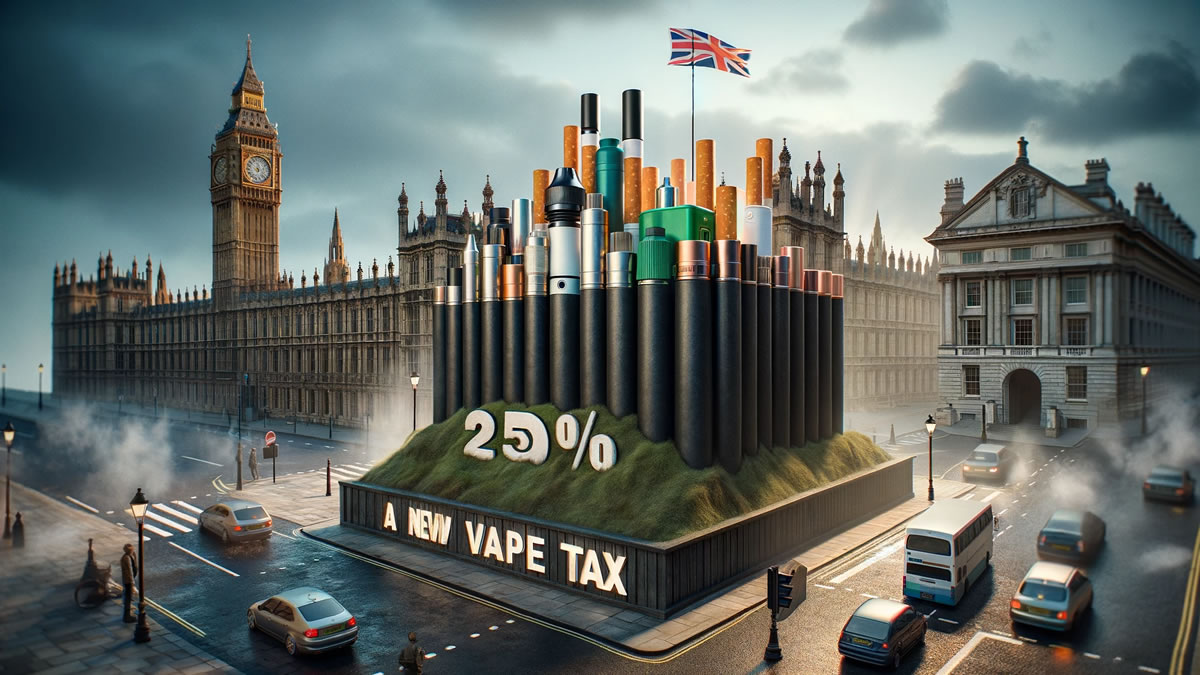
The UK government is expected to announce a 25% tax on vaping products when it releases its annual budget on March 6th. This would mark the first time vapes are taxed in the UK after nearly a decade of progressive vaping regulations.
Why is the UK Considering a Vape Tax?
The tax aims to discourage youth vaping and offset lost tax revenue from eliminating other taxes, according to government sources. It was among proposals submitted during a public consultation ending December 2022, along with vape flavor bans, disposable vape restrictions, and regulating packaging images.
The consultation responses will supposedly guide the final announced policies. However, inside sources suggest some form of vape tax is "almost inevitable" at this point.
What Could a UK Vape Tax Look Like?
Early reports point to a minimum 25% price increase. This could take the form of:
- Per-milliliter tax on e-liquids
- Tax based on wholesale value of vaping products
- Combination approach
The government already announced its plan to incrementally ban cigarette sales under a "smokefree generation" law. Officials have hinted vaping rules would be revisited as well to align policies.
Why Tax Vaping Products?
The government believes taxing vapes will:
- Deter youth uptake of vaping
- Offset revenue losses from eliminating other taxes
- Fund healthcare costs
However, public health experts widely agree that appropriately regulating vapes to maximize smoking substitution is the most beneficial policy. Research clearly shows vape taxes have the opposite effect by:
- Increasing cigarette sales as vapes become less price competitive
- Pushing vapers to cut back or relapse to smoking
- Deterring smokers from switching
So while seeking extra revenue, a vape tax could seriously undermine the UK's tobacco harm reduction goals.
What Next for UK Vaping Regulations?
The budget on March 6th will confirm if a vape tax is introduced. Additionally, the "smokefree generation" law requires Parliament approval. Some Conservative MPs have already vowed to oppose both measures.
To pass the legislation, Prime Minister Rishi Sunak would need support from opposition parties like Labour. And early indications suggest Labour would back reforms to support the mandates.
So despite dissent from some officials, the government appears on track to pass substantial vaping policy changes in 2023. The impacts on smoking rates and public health could be significant.
A Balanced Approach Is Needed
Nobody disputes reasonable regulations to prevent youth access and improve product standards make sense. However, policies like excessive taxes specifically designed to reduce vaping will likely backfire.
The UK strike the right balance for years with pragmatic vaping laws. Smoking rates declined year after year. Rather than overcorrect out of misguided fears, policymakers would be wise to stay the course on evidence-based tobacco harm reduction policies.
Watering down vaping's appeal versus cigarettes through bans, taxes or restrictions works against public health goals to minimize smoking. With thoughtful regulations instead of reactive policies, the UK can maintain progress toward their smokefree ambitions.







